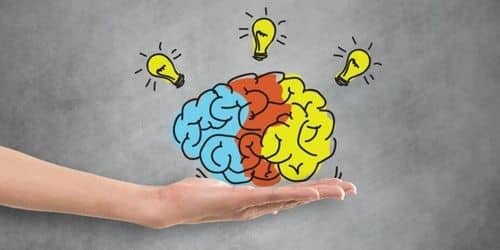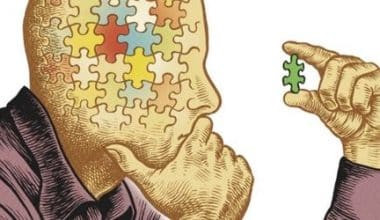We forget things every now and then, but what happens when it becomes a habit? Memory loss is linked to underlying health issues most times, but in some cases, it only takes your changing some lifestyle habits to improve your memory. Here, we’ll provide you with some helpful tips for improving your memory naturally, as well as books that can help you improve your memory. Note, also, that improving your concentration will go a long way to help you improve your memory, as you’ll see later on.
Tips On How To Improve Your Memory Naturally
#1. Reduce your sugar intake
Consuming plenty of added sugar has been linked to a variety of health problems and chronic diseases, including cognitive decline. Reducing your sugar intake not only benefits your memory, but it improves your general health.
#2. Engage in physical activity every day.
Physical activity increases blood flow throughout the body, including to the brain. This may aid in memory retention.
The Department of Health and Human Services recommends at least 150 minutes per week of moderate aerobic activity, such as brisk walking, or 75 minutes per week of vigorous aerobic activity, such as jogging, for most healthy adults. This activity should be spread out over the course of the week. If you don’t have time for a full workout, try going for several 10-minute walks throughout the day.
#3. Consider taking a fish oil supplement.
Fish oil contains high levels of the omega-3 fatty acids eicosapentaenoic acid (EPA) and docosahexaenoic acid (DHA).
Both DHA and EPA are essential for brain health and function, and they also help to reduce inflammation in the body, which has been linked to mental decline. And so, eating fish and taking fish oil supplements can improve your memory, especially if you’re elderly.
#4. Maintain mental activity
Just as physical activity keeps your body in shape, mental activities help keep your brain in shape. And those activities may aid in the prevention of some memory loss. Complete crossword puzzles. Read. Play some games. Learn how to play an instrument. Take up a new hobby. Volunteer at a nearby school or with a community organization.
#5. Spend time with other people
Social interaction can help prevent depression and stress. Both of these can lead to memory loss. Look for ways to connect with loved ones, friends, and other people, especially if you live alone.
#6. Maintain your organization
If your home is cluttered or your notes are disorganized, you are more likely to forget things. Maintain a notebook, calendar, or electronic planner to keep track of tasks, appointments, and other events. You could even repeat each entry aloud as you write it down to help it stick in your mind. Maintain up-to-date to-do lists. Check off the items you’ve completed. Keep your wallet, keys, glasses, and other important items in a convenient location in your home.
Distractions should be kept to a minimum. Don’t try to do too much at once. If you concentrate on the information you want to remember, you’ll be more likely to remember it later. It may also help to associate what you’re trying to remember with a favorite song, a familiar saying, or an idea.
#7. Get enough sleep
Memory loss has been linked to a lack of sleep. So has restless sleep and sleep that is frequently interrupted. Make adequate healthy sleep a priority. Adults should get 7 to 9 hours of sleep per night on a regular basis. Make an appointment with your doctor if your snoring is interfering with your sleep. Snoring may indicate a sleep disorder such as sleep apnea.
#8. Maintain a healthy diet
A nutritious diet is beneficial to the brain. Consume fruits and vegetables, as well as whole grains. Low-fat protein sources include fish, beans, and skinless poultry. What you drink is also important. Alcoholism can cause confusion and memory loss.
#9. Meditate
Meditation can be beneficial to your health in a variety of ways.
It is soothing and relaxing, and it has been shown to reduce stress and pain, lower blood pressure, and even improve memory.
Meditation, in fact, has been shown to increase gray matter in the brain. Neuron cell bodies can be found in gray matter.
Gray matter declines with age, which has a negative impact on memory and cognition.
Meditation and relaxation techniques have been shown to improve short-term memory in people of all ages, ranging from young adults to the elderly.
#10. Maintain a healthy weight
Maintaining a healthy body weight is essential for overall well-being and is one of the most effective ways to keep your body and mind in peak condition.
Obesity has been identified as a risk factor for cognitive decline in several studies. It can actually alter memory-associated genes in the brain, affecting memory negatively.
Obesity can also cause insulin resistance and inflammation, both of which can harm the brain.
#11. Exercise mindfulness
Mindfulness is a mental state in which you concentrate on your current situation while remaining aware of your surroundings and emotions.
Meditation incorporates mindfulness, but the two are not synonymous. Mindfulness is a mental habit that can be used in any situation. On the other hand, meditation is a more formal practice.
Mindfulness has been shown in studies to be effective at reducing stress and improving concentration and memory.
Mindfulness has also been linked to a lower risk of age-related cognitive decline as well as an improvement in overall psychological well-being.
Incorporate mindfulness techniques into your daily routine by paying more attention to your surroundings, focusing on your breathing, and gently resetting your focus when your mind wanders.
#12. Moderate alcohol intake
Too much alcohol can be harmful to your health in a variety of ways, including a negative impact on your memory.
Binge drinking is a drinking pattern that results in blood alcohol levels of 0.08 grams per ml or higher. According to research, it alters the brain and causes memory deficits. Repeated binge drinking episodes can harm the hippocampus, a part of the brain that is important for memory.
While a drink or two now and then is probably fine, avoiding excessive alcohol consumption is a smart way to protect your memory.
#13. Limit your intake of refined carbohydrates.
Consuming a lot of refined carbohydrates, such as cakes, cereal, cookies, white rice, and white bread, can be bad for your memory.
Refined carbohydrates, like added sugar, cause a spike in blood sugar levels, which can damage your brain over time. Refined carbohydrate diets have been linked to dementia, cognitive decline, and decreased brain function.
#14. Check your vitamin D levels
Vitamin D is a vital nutrient that serves many functions in the body.
Low vitamin D levels have been linked to a variety of health problems, including a decline in cognitive function.
Low vitamin D levels have also been linked to an increased risk of developing dementia.
Vitamin D deficiency is extremely common, particularly in colder climates and among people with darker skin. Consult your doctor about getting a blood test to determine if you require a vitamin D supplement.
#15. Eat anti-inflammatory foods.
Anti-inflammatory foods, particularly berries and other antioxidant-rich foods, are beneficial to the brain. Consuming a variety of fruits and vegetables is a great way to incorporate more anti-inflammatory foods into your diet.
#16. Include cocoa in your diet.
Cocoa is not only delicious but also nutritious, containing a high concentration of antioxidants known as flavonoids. According to research, flavonoids are especially beneficial to the brain.
They may help stimulate the growth of blood vessels and neurons, as well as increase blood flow in memory-related areas of the brain.
A study of 30 healthy people found that those who ate dark chocolate with 720 mg of cocoa flavonoids had a better memory than those who ate white chocolate without cocoa flavonoids.
Choose dark chocolate with a cocoa content of 70% cacao or higher to reap the most benefits from it. This will help to ensure that it contains more antioxidants, such as flavonoids.
Cocoa is high in antioxidants, which may aid in the memory performance. Choose dark chocolate with 70% cacao or higher for a concentrated dose of antioxidants.
#17. Handle chronic health issues
When dealing with medical conditions such as high blood pressure, diabetes, depression, hearing loss, and obesity, listen to your doctor’s advice. The better you look after yourself, the better your memory will be. Review your medications with your doctor on a regular basis. Some medications can impair memory.
How Does Improving Your Concentration Help Improve Your Memory?
Concentration enables you to focus on the world around you in order to input and process more information from your senses. These facts and experiences are stored in greater detail in your memory banks, where they can be recalled as needed.
Our brains store memories in a variety of ways. Some create more lasting memories than others. The type we make is determined by what we do with the information as soon as we receive it.
Moving information from easily forgotten areas of memory to areas where we can recall it for extended periods of time necessitates concentration. The more focused we are, the easier it will be to store and retrieve these memories when the time comes.
Tips On How To Improve Your Concentration For Improved Memory
Concentration is similar to muscle. It gets stronger the more you use it. However, you cannot continue to use it in the same manner and expect things to improve. You must prepare your mind for success in the same way that a bodybuilder prepares their muscles for competition. Giving your cognitive functions what they need to thrive as well as multiple sources of stimulation will help you develop and improve your concentration over time. Here are tips on how to improve your concentration:
#1. Maintain a healthy lifestyle
A healthy lifestyle can help you improve your cognitive abilities. Getting enough sleep and eating a varied, healthy diet rich in omega-3 fatty acids, antioxidants, and whole grains can rev up your neurons. Don’t forget to include aerobic exercise in your regular physical activity to help blood flow to your brain cells.
#2. Play games
Playing is an excellent way to boost your brain power. You don’t have to spend money on brain training apps. Playing sudoku or crossword puzzles is an excellent way to challenge your brain and improve your thinking abilities.
#3. Broaden your skillset
Learning a new skill can help you improve your concentration and memory function significantly. Learning a new skill or learning a new language keeps your mind active. If you want to take it a step further, teach someone else what you’ve learned.
#4. Play good music
This can’t be overemphasized. Feel-good music can help improve critical thinking and problem-solving creativity. It stimulates the neural pathways associated with concentration, but you must be careful about the songs you listen to. Because not all music helps you concentrate, stick to Mozart while working and save the pop ballads for the ride home.
#5. Focus on one thing at a time
Stop trying to multitask. It takes at least 25 minutes for your concentration to reach peak levels, and switching tasks reduces your efficiency and productivity.
Books On How To Improve Your Memory
If you want to improve your memory, start with these best-selling books:
- Unlimited Memory: How to Use Advanced Learning Strategies to Learn Faster, Remember More, and Be More Productive.
- Memory Improvement: How To Improve Your Memory In Just 30 Days.
- The Memory Book: The Classic Guide to Improving Your Memory at Work, at School, and at Play.
- Power Foods For The Brain: An Effective 3-Step Plan To Protect Your Mind And Strengthen Your Memory
- How We Learn: The Surprising Truth About When, Where, and Why It Happens
- Make It Stick. The Science of Successful Learning
- How To Develop A Brilliant Memory Week By Week: 52 Proven Ways To Enhance Your Memory
- Moonwalking With Einstein: The Art and Science of Remembering Everything
- A Mind For Numbers: How To Excel At Math And Science Even If You Flunked Algebra
- Stolen Focus: Why You Can’t Pay Attention, And How To Think Deeply Again
- The Memory Illusion: Remembering, Forgetting, and the Science of False Memory
- The Power of Discipline: How To use self-control and Mental Toughness to Achieve Your Goals
Reading does, in fact, strengthen the brain. Moreso, reading books that teach how to improve brain functions is way better.
Reading will perform its brain-strengthening action, and you will learn things that you can apply to further boost brain functions.
When Should You Seek Memory Loss Assistance?
Make an appointment with your doctor if you are concerned about memory loss. It’s especially important to seek help if your memory loss interferes with your daily activities, if you notice your memory deteriorating, or if a family member or friend is concerned about your memory loss.
During your appointment, your provider will most likely perform a physical exam as well as tests of your memory and problem-solving abilities. Other tests may be required in some cases. Treatment is determined by the cause of the memory loss.
What Is The Cause Of Poor Memory?
Poor memory is usually caused by depression, an infection, or side effects from a medication.
What Lack Of Vitamin Causes Memory Loss?
Vitamin B12 deficiency has been linked to impaired cognition and memory, as well as tingling and numbness as a result of poor myelination.
What Is Brain Fog?
Brain fog is a condition characterized by confusion, forgetfulness, and a lack of focus and mental clarity are symptoms of brain fog. Overwork, lack of sleep, stress, and spending too much time on the computer can all contribute to this.
What Are The 3 Foods That Fight Memory Loss?
Green vegetables, fish, and berries are the 3 foods that help fight memory loss.
What Are The Symptoms Of Poor Memory?
The symptoms of poor memory loss include:
- Repeatedly asking the same questions.
- Forgetting common words when speaking
- Misplacing words
- Completing routine tasks, such as following a recipe, takes longer.
- Putting items in inconvenient places, such as a wallet in a kitchen drawer.
In Conclusion
There are numerous simple and enjoyable ways to improve your memory. Exercising your mind and body, enjoying a good piece of chocolate, and limiting your intake of added sugar are all excellent techniques.
Reading is another way to improve your memory, and reading memory-improvement books is even better. Incorporate these tips into your daily routine and watch your memory improve over time.
Related Articles
- CLASSIC BRANDS MATTRESS: Overview, Reviews & What You Should Know
- HOW TO GET SMARTER: 15 Proven Habits that Work Everyday
- BUSINESS PRODUCTIVITY TOOLS: Definition, and Best Productivity Tools
- TECHNIQUES FOR DATA MINING to Scale any Business in 2023
- BASKETBALL LOGO: Designs, Rules, and Legends






